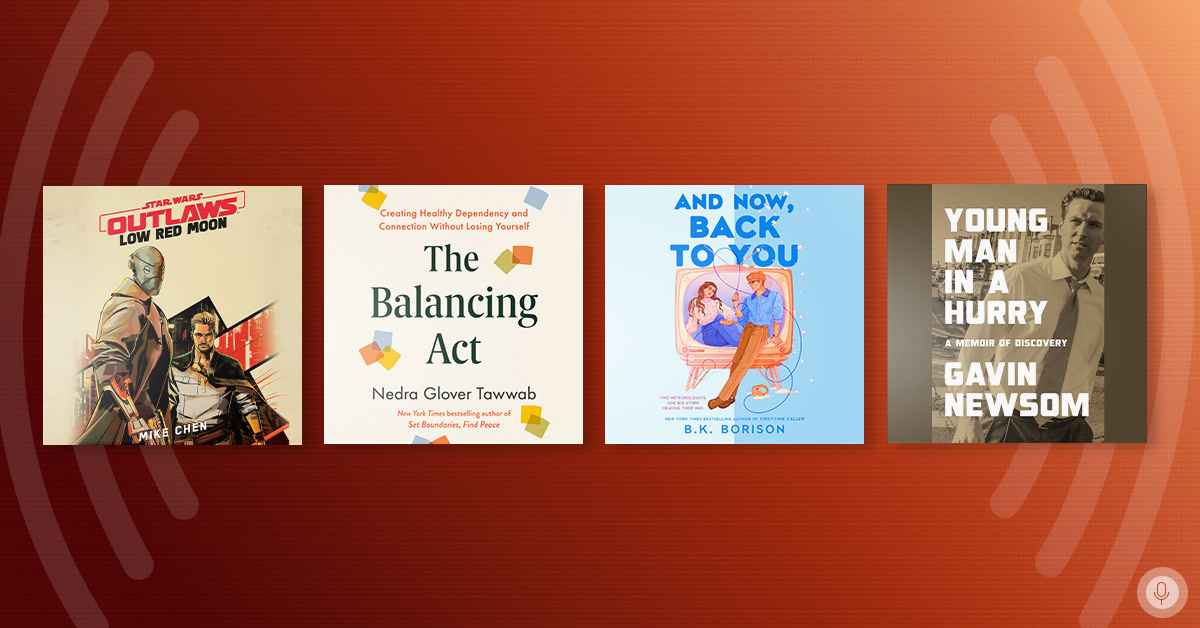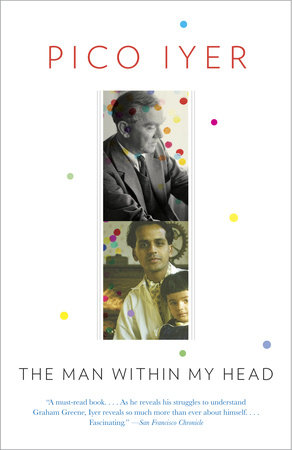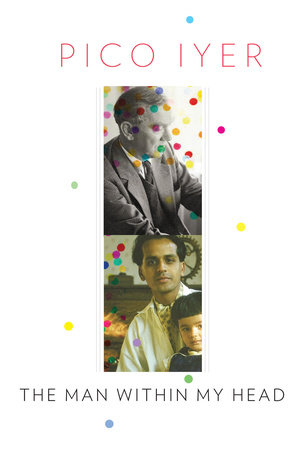Ever since he first discovered Graham Greene’s work, Pico Iyer has felt a haunting closeness with the English writer. In The Man Within My Head, Iyer follows Greene’s trail from his first novel, The Man Within, to such later classics as The Quiet American, examining Greene’s obsessions, his elusiveness, and his penchant for mystery. The deeper he plunges into this exploration, the more Iyer begins to wonder whether the man within his head might not be Greene but his own father, or perhaps some more shadowy aspect of himself.
Drawing upon experiences across the globe, from Cuba to Bhutan, and moving, as Greene would, from Sri Lanka in war to intimate moments of introspection, this is the most personal and revelatory book yet from one of our most astute observers of inner journeys and crossing cultures.
“[Iyer] is a wonderful wordsmith, and he provides engaging stories.” –Kirkus
“It may be that Iyer’s beautifully contoured sentences embody all the landscapes he’s absorbed as he’s traveled the world, pen in hand. Iyer is always present in his celebrated books, but never to the extent he is here in this captivating memoir of an unsought, often unnerving affinity…Iyer’s deep-diving expedition also illuminates the mystery and spirit of the literary imperative: ‘A writer is a palmist, reading the lines of the world.’” –Booklist
“A contemplative, idiosyncratic book, a kind of side trip that diverges from the routes of Iyer’s usual writing…as “The Man Within My Head” demonstrates, there’s fellowship to be found in the community of eloquent strangers, an eternal literary companionship.” –The New York Times Book Review
“A courageous, intriguing book, perhaps better described generically not as a memoir but a confession.” –The New York Review
“As Iyer investigates Greene’s life, he finds more parallels with his own, some superficial and some profound, which Iyer susses out in his usual composed, flowing prose.” –The Daily Beast
“Iyer’s rich and provocative book invites us to see the world in which we find ourselves today in a new and revealing light, and that’s the real measure of his accomplishment. ‘A writer is a palmist, reading the lines of the world,’ Iyer says of Greene, but he could be describing himself just as well.” –JewishJournal.com
“[Iyer] is masterful at describing travel…a rewarding read.” –Livemint.com
“This book is an original, a literary feat, a kind of counter-biography and shadow-autobiography. I can’t think of another quite like it…The Man Within My Head is Iyer’s richest, wisest book to date.” –The Hindu
“Iyer writes admiringly and persuasively about Greene in ways that the novelist may have approved…an engrossing read.” –Commenweal Magazine
ISBN9780307387561
Published onJan 22, 2013
Published byVintage
Pages256
Dimensions5-3/16 x 8
A: Well, it’s easy to point out some of the things we have in common: we both grew up in the same kind of English boarding-schools, and so developed an interest in going to places as different as possible from that, from Saigon to Havana and Port-au-Prince to South Africa. We both grew up with fathers who were teachers and so tried to rebel against that, and refused to settle to the faith of our fathers—even though we knew we couldn’t write it off entirely. We both, probably, sit a little on the outside of things, while seeing that to do so is untenable.
But really I wouldn’t trust any explanation I could give you: the beauty of affinity is that you can’t explain it away, any more than you can say why the color green appeals to you, and not the color orange, or why you fell for this fiery redhead and not that one. There are plenty of other writers with whom I have more in common, yet I don’t really feel close to them at all.
But I do like the way Greene was always more interested in questions than in answers, and always suggests that it’s what you do that’s more important than what you believe. Kindness is more vital to him than doctrine. I like his sense of mischief, his loyalty to his friends, his sense of fun and, mostly, his wisdom about himself: I always feel that he brought as much sympathy and understanding to others as he brought unsparing honesty to himself.
He saw the point of life, as Thomas Merton has it, as not becoming more rich, more powerful or more famous, but “more real,” better able to understand the self and the great world. Much like, in fact, one of my other lifelong interests and affections—I once had a whole long section in this book on the connections between them—Leonard Cohen.
Both of them remind me of a sign I saw up in the Nobel Peace center in Oslo last summer, from Virginia Woolf: “You can’t find peace by avoiding life.”
Q: What first got you interested in him?
A: I think I’ve always been fascinated by secret correspondences, as you could call them, the way you see a stranger across a crowded room and feel you know her better than you know some of the people you’ve been talking to for twenty years. The way you dream about a place you’ve barely seen, though the house you live in never once appears in your dreams. The way you pick up a book—this is how I am with Greene—and feel as if you know, word for word, what the main character is going to say or do three pages from now. And you do.
These invisible connections are often just as interesting as the connections we can explain—and, of course, they were a constant preoccupation with Greene, too, because of his lifelong interest in dreams and the subconscious. I continue to find it fascinating that his boyhood was divided between a very traditional English boarding-school, of the kind I know too well, where his father was headmaster, and six wild and free months with a Jungian spiritualist. In some ways you could explain much of what followed through his two competing fathers—one an upstanding, pious, rather innocent teacher, the other a maverick explorer of everything murky and unexplained.
At various points in my research, I came up with all kinds of uncanny correspondences with Greene: I’d find out he was confessing to a Father Pilkington, and remember that my housemaster in school was called Father Pilkington, not such a common name; I’d see him plotting to write a play on the rather obscure 19th century Romantic painter and diarist Benjamin Robert Haydon and recall how I’d once planned to write a doctoral dissertation on the rather obscure 19th century Romantic painter and diarist Benjamin Robert Haydon. I’d find that he revered a little-known old French work of theology that turned out to be the same little-known old French work of theology around which I once based a whole novel. But finally I came to think that those kind of affinities are the least interesting kind; what was fascinating was how I’d see his responses to a Cuban rogue, I’d note the games he played with faith, I’d watch his relations with women in his books, now dangerously chivalrous, now bewildered, and realize, not always very happily or comfortably, that he was describing me better than I could do myself.
The more I looked at it, the more I came to see how the central dynamic in a book like The Quiet American—between England and America, and between a jaded skeptic from an old culture and a wide-eyed idealist from a younger one—might in some ways be the story of my life, traveling as I did between my parents’ home in the hippie California of the ‘60s and an English boarding-school that hadn’t changed much since its founding in 1441. (Nowadays, of course, I continue the same commute going back and forth between cosmopolitan Santa Barbara and rural, quite traditional Japan).
Q: How did you actually feel about your boarding-schools? They’re such a strong presence in the book, but it’s not always clear what you think about them. You describe all these grueling, violent rites and customs, and then you say they were the best days of your life. Are you a masochist?
A: Let’s hope not! But I know what you mean. My friends in California look at me as if I were mad when I describe our cold showers at dawn, and getting beaten by other boys, and long runs through the rain, and sucking an occasional Coke through a rusty bottle-top to make it last—boot camp, in effect—and then say how grateful I am to that world. But I do think boarding-school has been the best influence in my life, if only because it’s a system refined over centuries to prepare boys for business or war—or, in fact, what I do, which is spend long days alone at my desk and then go out into the more difficult parts of the world.
Going to boarding-school means you’re acting out in adolescence with men who are trained to deal with that, and your relations with your parents are relieved of a lot of strain; and going to one of those classic old schools means that you’re going to enjoy really talented classmates and teachers and will never be impressed by an old school again, or its name.
Of course there are shadow sides to this, as I mention in the book: the classic English boys’ school doesn’t teach you how to deal with girls; and not all the toughness is for the good. I have friends who’ve never recovered from their days at school, and one of our teachers had to serve time in prison for his abuse of boys. But I don’t think I could have been a writer—or traveler—if I hadn’t gone through the training that, in the case of our school, produced, for example, George Orwell and Aldous Huxley and Cyril Connolly in a single generation; one reason so many of the world’s great travelers come from English boarding-schools—even now—is that after five years in a tiny, unheated, 15th century cell, the caves of Afghanistan, or the food you’ll eat in the Sahara, don’t seem too bad at all.
As I wrote this book, I kept reminding myself that the world doesn’t need another account of life in a 15th century English boarding-school. And I also kept telling myself that the world doesn’t need another account of California in the ‘60s. But the interaction between them, the way each projects its own dreams or longings on the other, the effect it might have on a little boy to move, in less than 24 hours, from a student revolution to singing the Lord’s Prayer in Latin in a classroom built in 1441—that might all be interesting. It’s certainly unprecedented, as humans could not cross such vast distances at such great speed before. And that’s been my theme in all my books so far—the mutual romance, the vexed fascination, between cultures, Old World and New, Eastern and Western. What it is to grow up not in London and not in the hills of California and not in Bombay, but in constant passage between them, the spaces between.
Q: This book may be a hybrid, but it is non-fiction, no?
A: Yes. I worked really hard to try to give it something of the flavor and the texture of fiction, with recurring characters and vivid scenes in Saigon and Havana and elsewhere, and with something of a story; but it’s all true, or at least strongly rooted in one person’s very qualified and partial vision of the truth. So often memoir is a kind of fiction, I think—but one that doesn’t acknowledge it’s fiction. People are never less trustworthy than when writing about themselves and the people around them!
But one thing I’ve always admired about Greene is that he’s so unremittingly honest, about precisely the things most of us like to hide or evade. His own memoirs hide behind charm and anecdote and childhood memories, and his books of travel are feats of ill temper and needless suffering; but get him to write fiction, and he crafts close, dark, rending confessionals, which air his most intimate terrors and betrayals.
If you write books observing the world, as I have done, it’s very easy to try not to look at the things that give you trouble; but if you read Graham Greene, as I have done, you hear him telling you to look precisely at where the hurt or vulnerability lies. Writing is one of the few ways you can address it; self-therapy without a price tag. It’s like recounting your dreams, a way of collecting concrete evidence for what is otherwise free-floating and inward and vague. I probably began this book writing mostly about Graham Greene, but my editor was wise and sharp enough to tell me to try to look closer to home, at what was making me interested in Graham Greene. He’s always alert to where I try to deflect things from myself.
Q: And then, suddenly, there’s all this stuff about your father.
A: Yes. I deliberately made that shadowy and brief, even perhaps frustrating for the reader; this isn’t a memoir, as I state explicitly at one point. One thing we were told, over and over at school, was that the world at large is much more interesting than our petty little dramas or concerns.
But I did want to try to catch that sense that there was another man within my head knocking at the door, coming to the surface, beginning to make his presence felt the longer I looked at my literary godfather Greene; and the very fact that I wasn’t keen to write too much about my father—where I could go on about Greene all day—was part of the point. I wanted him to be a presence sneaking in at the corner of the picture.
I’m guessing this is something that many a reader can relate to: we all have parents, and sometimes we’d rather think of anything but them. They are our lifelong blind spot and soft spot and Achilles heel, not least because we know we cannot run from the fact that we’re very similar to them, and that what tormented us in them is very likely in us, too. What we don’t talk about, what we shy away from, what we put at the margins may be at least as interesting as what we happily rattle on about all day. Parents are like cabin attendants or doctors, I sometimes think; we only notice them when something goes wrong. But unlike cabin attendants or doctors, they’re with us for life; you can’t really escape them, even if you try to close the door on them. And the malpractice suits known as memoirs have almost got out of hand.
What’s doubly interesting in this context, of course, is that I can feel, with a writer like Greene, that I know all his most intimate fears, guilts and habits, because he put them all down so strongly on the page; yet sometimes, with the people who should be closest to us, we can feel that we don’t actually know them at all. The man within my head is much clearer than the man within my blood.
Q: What’s next for you?
A: I try to make each book as different as possible from the one that’s come before, at least on the surface—its opposite or refutation. So I’ve been collecting notes (for many years) for a book on Japan, and my nightly games of ping-pong with the local grandmas there, and how this interacts with the steadying gospel of the autumn and the question of what changes and what doesn’t change as the years go by Since this book is rather cloudy and slippery and about hauntedness, I want the next to be warm, funny, very human—a series of scenes, really, in the Japanese way, just depicting the madness and sanity of the neighborhood around me. No analysis, just people being people.
Q: On a different note, were you affected much by the earthquake and nuclear fallout? Do you think Japan has been?
A: Somewhat to my embarrassment, I flew out of Japan the day before the earthquake rocked it. So the one time when my adopted home was in the news, and every media outlet from Vanity Fair to the Wall Street Journal was coming to me for inside information, I was sitting in Santa Barbara, California, looking out over the Pacific and unable to say anything useful or interesting about it.
But I’m not sure how much the calamity of March 2011 has really affected the country: it’s been around for 2600 years, after all, and most of those years it’s been ready to take on some dread event, whether through war or typhoon or fire or earthquake.
You could almost say that, like many old cultures, it’s been set up to deal with disaster forever; it doesn’t see pain as the opposite of happiness (and sometimes sees happiness as the way you find to accept and live with pain). I’ve always felt that Japan is a country defined not by the pursuit of happiness but by the Buddha’s first rule, of the reality of suffering.
That said, I did go up to the area of the Fukushima Dai-ichi nuclear plant in October, with the great war photographer James Nachtwey, and it was really moving to meet the guys who are still laboring in the plant, just regular workers from all over Japan in need of money or a job, but worried about their radiation levels, and not quite sure what they’re getting into (as they asked passionate questions of the American doctor Robert Gale, who is a leading expert in radiation after his work around Chernobyl and who accompanied us up there).
And in November I went up to the tsunami-stricken area with the Dalai Lama, with whom I travel across Japan every November, and witnessed a really moving scene as he traveled to a fishing town that had been completely wiped out and began to shed tears himself as sobbing women clutched at him and said, “Thank you, thank you.” It was shocking to see pieces of washing still hanging outside shattered houses, a single chair in a hollowed-out living-room. Cars were still lying upside-down under water, telephone poles were tilting at 45-degree angles. Whole areas where there had been neighborhoods were now nothing but rubble, mountains of scrap metal rising behind fences.
Yet I don’t think Japan will be transformed by these events so much as the world’s perception of Japan may be. I’ve often felt a bit wistful that the country where I’ve chosen to live has some of the worst P.R. on the planet and has allowed itself to be seen in terms of its machines and its freakiness and its impassive, often impenetrable surfaces. It continues to seem more alien and unfathomable and remote to most of the rest of us than any country on earth, China and Korea included.
But during the disaster of 2011, its great human virtues, of patience and resilience and kindness, were finally evident on screen, and I’m really glad if one small thing that has come out of all the loss is that Japan wears a more human face to us now.
Certainly, this is what I’ll be trying to point up in my next book. My Japanese wife’s family comes in large part from Hiroshima, so, for as long as I’ve been in the country, I’ve been hearing stories of the effects of the atomic bomb on my father-in-law and other close members of my new family—and, interestingly, also witnessing their unembarrassed passion for America. I took my father-in-law for his first and only foreign trip since the war (when he’d served in Manchuria and ended up in a Siberian prisoner-of-war camp) to California. He still sleeps with his pictures of Santa Barbara by his bed, and dreams, aged 90, of moving there.
I suppose these are the kind of unwritten stories, and unexpected “contradictions,” that have always been the center of my curiosity. Geopolitical pundits talk about the “clash of civilizations,” but I’ve always been more interested in a “fascination of civilizations,” sometimes even a romance, as each side of the world looks to the other for what it doesn’t have.
Which brings us back to Greene, I suppose, and the way, growing up, I saw my ancient England fascinated with fresh, young California—and California seeming to hunger for some of the stability of Great Britain.
Author
Pico Iyer
Pico Iyer is the author of fifteen books, translated into twenty-three languages, and has been a constant contributor for more than thirty years to Time, The New York Times, Harper’s Magazine, the Los Angeles Times, and more than 250 other periodicals worldwide. His four recent talks for TED have received more than eleven million views. www.picoiyerjourneys.com
Learn More about Pico IyerYou May Also Like

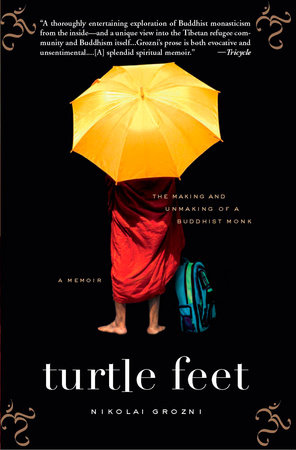
Turtle Feet

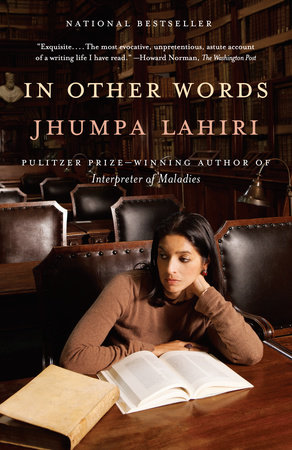
In Other Words

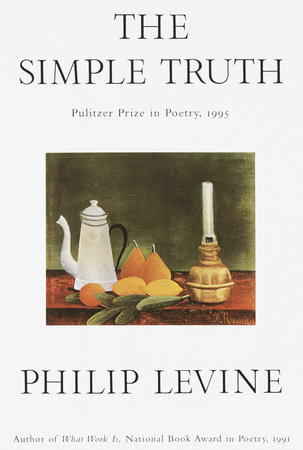
The Simple Truth

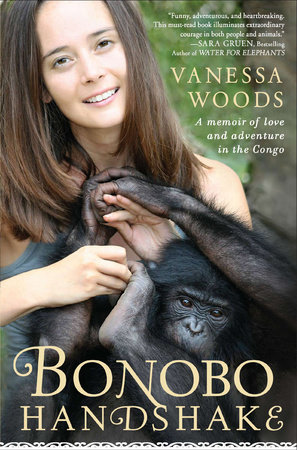
Bonobo Handshake

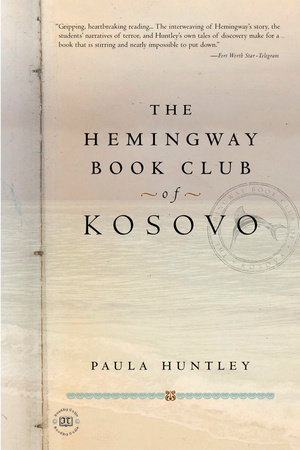
The Hemingway Book Club of Kosovo

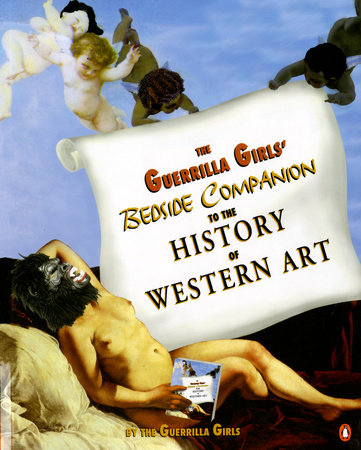
The Guerrilla Girls’ Bedside Companion to the History of Western Art

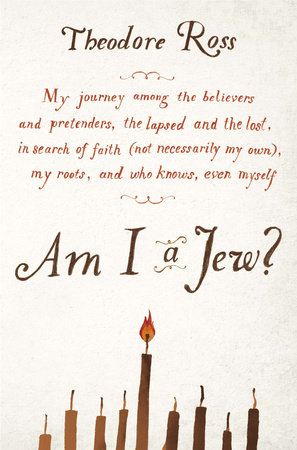
Am I a Jew?


One Life

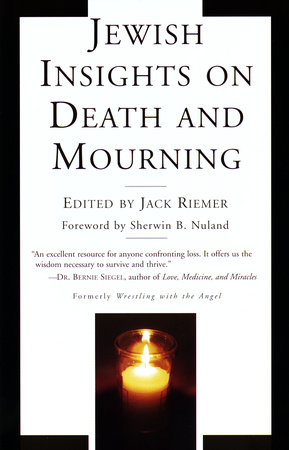
Jewish Insights on Death and Mourning

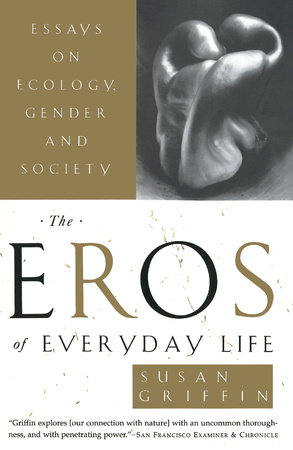
The Eros of Everyday Life
Visit other sites in the Penguin Random House Network
Account Overview Recommendations Orders Account Details Email Preferences Bookshelf


